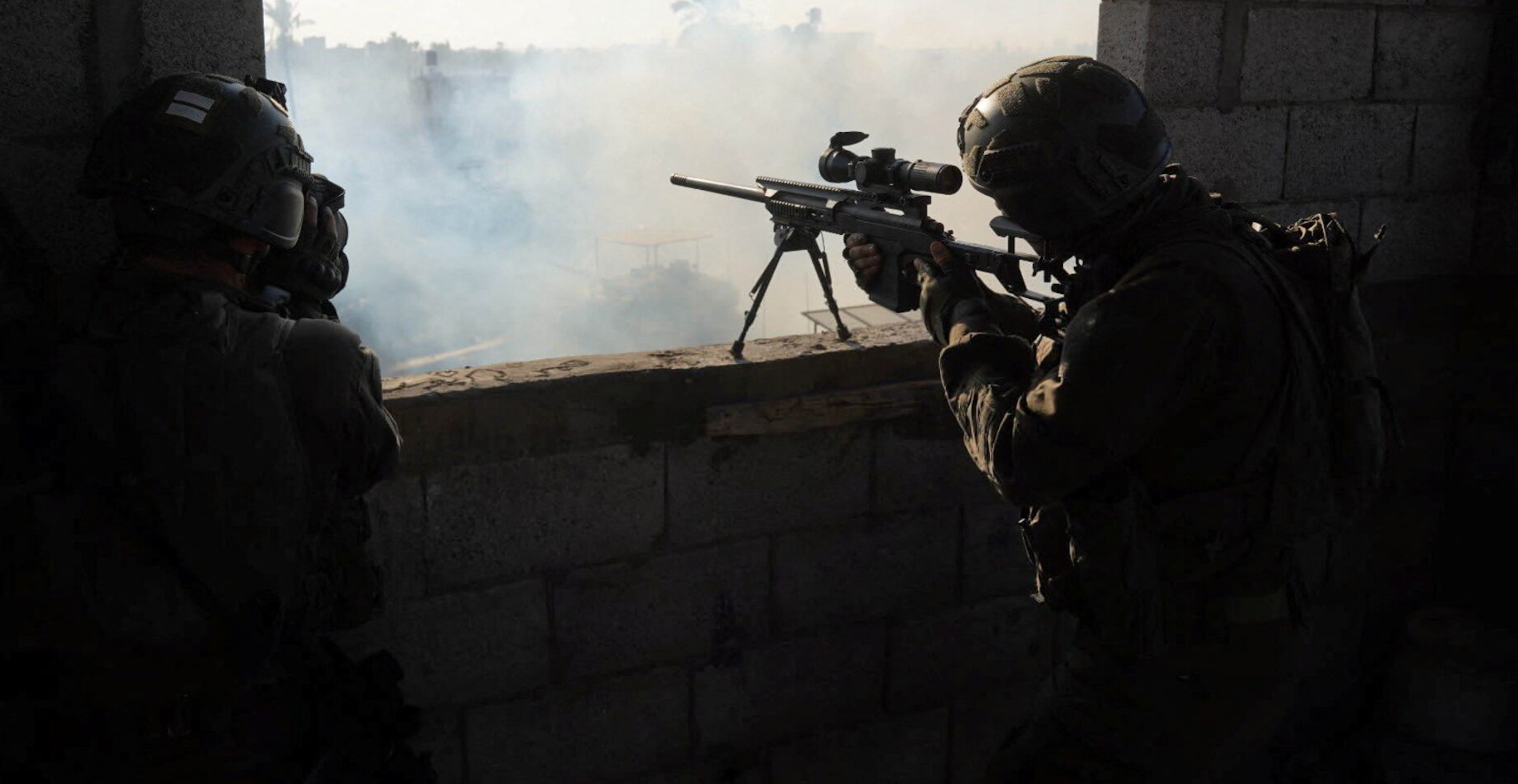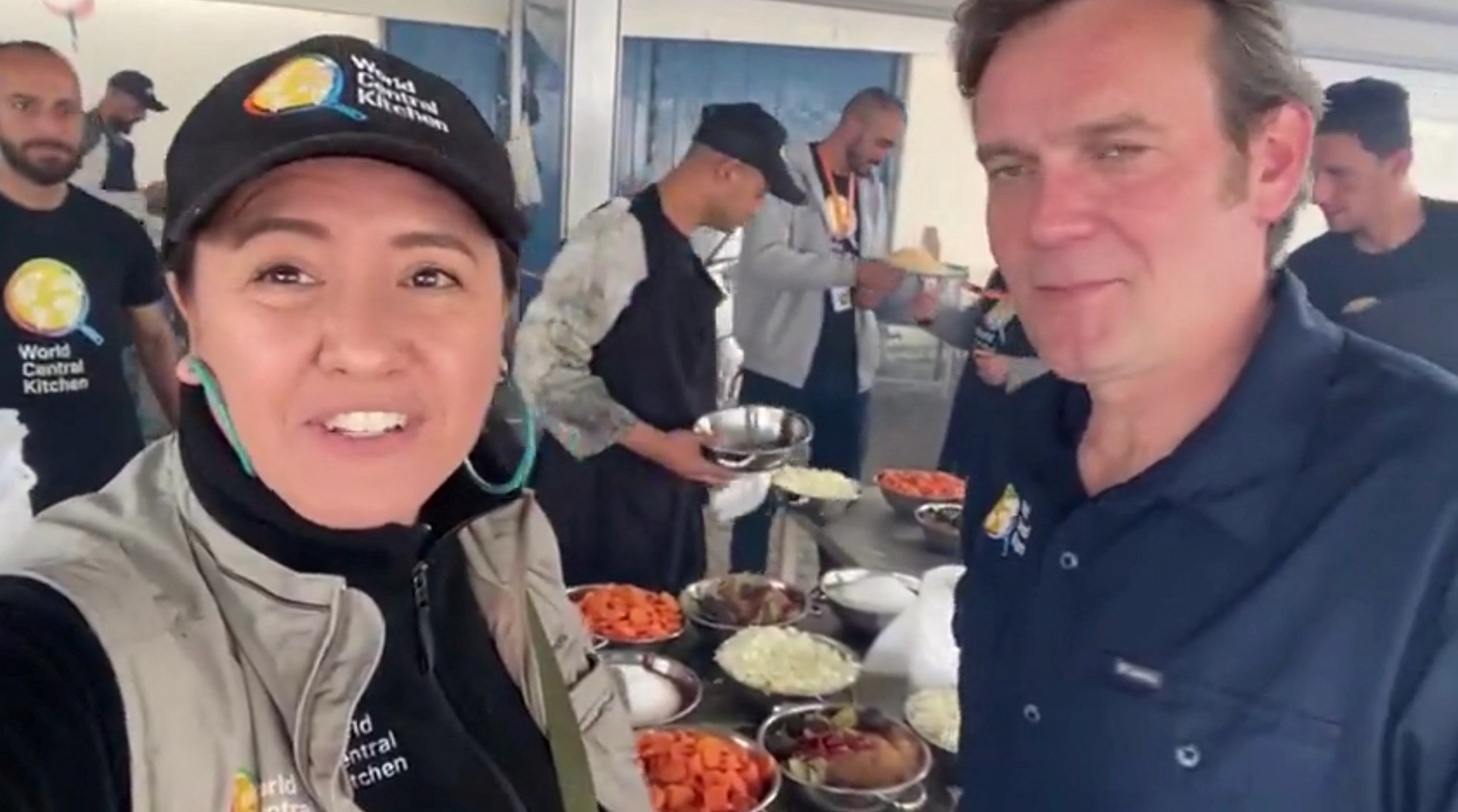
Israel says it plans to adjust Gaza war tactics after killing aid workers
PHOTO CAPTION: Israeli soldiers operate in the Gaza Strip in this picture released on December 27, 2023. (Israeli Defense Forces photo via Reuters)
By Dan Williams
JERUSALEM (Reuters) -Israel said on Thursday it would adjust its Gaza war tactics after killing seven aid workers in an air strike that the military called an operational accident, though the process may take weeks while an investigation proceeds.
Monday's incident has stoked Western anger at the mounting civilian toll in the Palestinian enclave, especially as the slain World Central Kitchen staff included Australian, British and Polish citizens along with a U.S.-Canadian dual national.
Israeli leaders have voiced sorrow over what they said was a misidentification of a WCK convoy at night in a combat zone.
Some local media reported, based on unnamed sources, that the convoy was hit repeatedly from the air despite having coordinated its route in advance with the military - possibly due to a false belief that gunmen were aboard it or close by.
WCK's founder, chef Jose Andres, told Reuters he believed his food delivery team had been "systematically" targeted.
Asked to respond, Israeli government spokesperson Raquela Karamson said during a media briefing: "This was unintended."
A military investigation was under way, she said: "In the coming weeks, as the findings become clear, we will be transparent and share the results with the public."
"Clearly something went wrong here, and as we learn more and the investigation reveals exactly what happened, and the cause of what happened, we will certainly adjust our practices in the future to make sure this does not happen again."
Israel Ziv, a retired army general who formerly commanded the Gaza division, said the incident may have resulted from the military enabling more junior officers to authorise air strikes.
WAR FOG
Whereas during quieter periods such an operation would require a green light from a division commander or a general in charge of regional forces, he said, "in wartime the situation is utterly transformed, because the number of threats is never-ending".
"If you don't allow greater latitude, further down the ranks, on opening fire, you endanger the troops and the war."
Ziv noted that Israel, which went to war after Hamas gunmen rampaged in its southern towns and army bases on Oct 7, has been fighting both to destroy the Palestinian Islamists' military capacity and deny them access to humanitarian aid sent to Gaza.
"That complicates the situation," he told Reuters.
As a preliminary move to make amends for the WCK deaths, Israel said it would set up a joint operational coordination room with humanitarian agencies, located within the military's Southern Command - where Gaza missions are directly managed.
An Israeli security official who spoke on condition of anonymity said ground forces in Gaza were down to around a quarter of their numbers at the height of the invasion, and focused on more pinpoint missions and securing conquered areas.
"This may have contributed to a feeling of 'sitting duck' vulnerability. Troops prefer to be on the offensive, rather than static and potentially open to attack or to seeing the enemy operate with relative freedom," the official said.
"The investigation will have to determine, among other things, whether this kind of thinking affected the judgement of whoever decided that the convoy should be struck."
More than 33,000 Palestinians have been killed in the war, Gazan medical officials say. Hamas has said 6,000 of its fighters are among the fatalities. Israeli officials say the Palestinian combatant death toll is more than twice as high.
"There is no war without mistakes - quite the opposite," Ziv said. "But usually in this kind of combat the number of non-combatants killed, in relation to enemy dead, is higher than what the IDF (Israel Defence Forces) has caused (in Gaza)."
(Writing by Dan Williams;Editing by Andrew Cawthorne)









